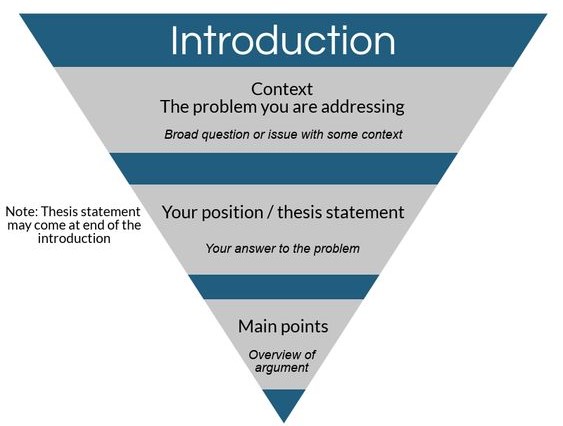
Table of Contents
The nursing profession is built on a foundation of precision and meticulousness, where even the smallest error can have significant consequences. Medication errors, unfortunately, are a reality of healthcare practice. A nursing assignment on medication errors delves into this critical aspect, demanding a comprehensive understanding of the underlying factors, potential repercussions, and strategies for prevention.
This article will guide you through the process of crafting a compelling and insightful nursing assignment on medication errors. It outlines the key considerations, with structural guidance, and valuable tips for success.
How to Write a Nursing Assignment on Medication Errors
1. Understanding the Scope: Delving into the Depth of Medication Errors
Before embarking on your nursing assignment on medication errors, it’s crucial to grasp the multifaceted nature of this issue. Medication errors can encompass a wide spectrum, from incorrect dosage calculations to mislabeling and administering the wrong medication altogether.

To write a truly impactful nursing assignment on medication errors, you need to delve into specific areas like:
- Types of Medication Errors: Explore the diverse categories of medication errors, such as wrong drug, wrong dose, wrong route, wrong time, and wrong patient. Providing specific examples and illustrating their potential consequences can enrich your assignment.
- Root Causes of Medication Errors: A thorough analysis should delve into the underlying reasons behind medication errors. This might include human factors like fatigue, stress, and inadequate training, as well as system-related factors such as poor communication, inadequate labeling, and lack of standardized procedures.
- Impact of Medication Errors: Highlight the devastating consequences of medication errors on patients, including adverse drug reactions, prolonged hospital stays, and even mortality. Emphasize the human toll and the financial burden these errors impose on the healthcare system.
- Legal and Ethical Implications: Discuss the legal and ethical ramifications of medication errors, including potential lawsuits, disciplinary actions against nurses, and the ethical obligation to prioritize patient safety.
2. Crafting a Robust Structure: A Framework for Success
Once you have a solid grasp of the subject matter, it’s essential to create a structure that will guide your writing and ensure a clear and logical flow. Consider the following structure for your nursing assignment on medication errors:
a. Introduction:
- Begin with a compelling hook that captures the reader’s attention, highlighting the significance of medication errors in healthcare.
- Briefly define medication errors and their various forms.
- State your thesis statement, clearly outlining the purpose and main argument of your nursing assignment on medication errors.
b. Body Paragraphs:
- Paragraph 1: Types and Causes of Medication Errors: Explore different types of medication errors and their root causes, providing specific examples.
- Paragraph 2: Impact and Consequences of Medication Errors: Discuss the negative repercussions of medication errors on patients, the healthcare system, and society as a whole.
- Paragraph 3: Strategies for Preventing Medication Errors: Present evidence-based strategies for reducing the risk of medication errors, including implementing standardized procedures, promoting a culture of safety, and enhancing medication safety education.
c. Conclusion:
- Summarize the key points of your nursing assignment on medication errors.
- Restate your thesis statement in a stronger, more impactful way.
- Offer a call to action, emphasizing the importance of ongoing vigilance and continuous improvement in medication safety.
3. Gathering Relevant Evidence: Building a Foundation of Knowledge

Your nursing assignment on medication errors should be grounded in credible evidence to support your arguments and conclusions. Consider using a variety of sources, including:
- Peer-Reviewed Journals: Seek out scholarly articles published in reputable nursing journals such as the Journal of Nursing Scholarship, the American Journal of Nursing, PhD Nurse Writer and Nursing Research.
- Nursing Textbooks: Refer to authoritative textbooks on medication administration, patient safety, and quality improvement in nursing.
- Healthcare Websites: Websites of organizations like the Institute for Safe Medication Practices (ISMP) and the National Patient Safety Foundation (NPSF) provide valuable insights into medication error prevention and best practices.
- Government Reports: Explore reports published by agencies such as the Centers for Disease Control and Prevention (CDC) and the Food and Drug Administration (FDA) on medication safety and adverse drug events.
- Case Studies: Incorporate relevant case studies from the nursing literature to illustrate the real-world impact of medication errors.
4. Incorporating Critical Thinking: Analyzing and Interpreting Data
Beyond merely presenting information, a successful nursing assignment on medication errors requires critical thinking. This means analyzing data, drawing inferences, and developing insightful conclusions. Ask yourself questions like:
- What are the most common types of medication errors in different clinical settings?
- What are the underlying factors that contribute to these errors?
- What are the most effective strategies for mitigating these risks?
- How can nurses actively contribute to creating a safer medication administration process?
- What are the future directions for improving medication safety in healthcare?
By engaging in critical thinking, you can elevate your nursing assignment on medication errors from a mere compilation of facts to a thought-provoking and insightful analysis.
5. Using Clear and Concise Language: Communicating with Precision

A well-written nursing assignment on medication errors utilizes clear, concise, and accurate language. Avoid jargon and technical terms that may confuse the reader.
- Use precise language: Instead of saying “there were a lot of errors,” be specific and state “there were 15 medication errors documented in the unit during the past month.”
- Define key terms: If you use technical terms, ensure they are clearly defined in the context of your nursing assignment on medication errors.
- Use strong verbs: Choose action verbs that convey the significance of your arguments, such as “analyze,” “evaluate,” “recommend,” and “suggest.”
6. Integrating Visual Aids: Enhancing Engagement and Understanding
Visual aids can greatly enhance your nursing assignment on medication errors by making complex information more accessible and engaging. Consider incorporating:
- Tables: Present data on medication error rates, types of errors, and prevention strategies in a clear and organized manner.
- Graphs and Charts: Visualize trends in medication error rates over time, compare error rates across different units or hospitals, or illustrate the impact of specific interventions.
- Flowcharts: Illustrate the medication administration process, highlighting potential points of error and demonstrating how specific interventions can mitigate these risks.
- Images: Use relevant images, such as photographs of medication labels, medication administration tools, or healthcare personnel administering medications, to enhance the reader’s understanding.
7. Citing Sources Accurately: Demonstrating Credibility and Integrity

Accurately citing your sources is not only essential for academic integrity, but it also enhances the credibility of your nursing assignment on medication errors.
- Use a consistent citation style: Adhere to the specific citation style mandated by your institution or instructor. Common styles include APA, MLA, and Chicago.
- Provide complete citations: Include all necessary information for each source, such as author’s name, year of publication, title, and source.
- Use in-text citations appropriately: Acknowledge sources within the body of your assignment to avoid plagiarism.
8. Proofreading and Editing: Polishing Your Work to Perfection
After completing your nursing assignment on medication errors, it’s essential to meticulously proofread and edit your work to eliminate any errors in grammar, punctuation, spelling, and style.
- Read aloud: Reading your assignment aloud can help you identify awkward phrasing, grammatical errors, and inconsistencies.
- Use spell-check and grammar-check tools: These tools can flag potential errors, but always double-check their suggestions.
- Seek feedback from a peer: A fresh perspective from a classmate can help you identify areas for improvement.
9. Incorporating Personal Reflections: Adding a Unique Touch
While your nursing assignment on medication errors should be grounded in evidence, incorporating your own reflections and insights can make it more impactful.
- Share your experiences: If you have witnessed or experienced medication errors firsthand, briefly discuss your observations and takeaways.
- Reflect on ethical dilemmas: Explore the ethical complexities of medication errors, such as the tension between patient safety and the potential for professional consequences.
- Offer recommendations: Based on your research and personal experiences, suggest practical steps that nurses can take to enhance medication safety.
Common Pitfalls in Writing Nursing Assignments
Content & Research:
- Lack of depth and critical analysis: Simply summarizing information without providing your own insights or analysis.
- Reliance on unreliable sources: Using Wikipedia, blogs, or other non-academic sources.
- Insufficient evidence: Failing to support your claims with credible research and evidence.
- Ignoring opposing viewpoints: Not acknowledging alternative perspectives or contradictory evidence.
- Plagiarism: Copying material without proper attribution.

Structure & Organization:
- Poorly structured arguments: Lack of clear thesis statement, logical flow, and supporting arguments.
- Insufficient evidence: Not providing enough supporting details or examples for your claims.
- Lack of coherence: Jumps between ideas without clear transitions or connections.
- Unclear language: Using jargon, technical terms, or complex language unnecessarily.
- Incorrect citation format: Failing to follow the required citation style consistently.
Style & Tone:
- Passive voice over-use: Using passive voice makes writing less engaging and can obscure responsibility.
- Formal tone when informal is appropriate: Using overly formal language can make writing stiff and impersonal.
- Informal tone when formal is required: Using slang, contractions, or colloquialisms in academic writing.
- Lack of engagement: Writing in a bland or monotonous style.
Other Pitfalls:
- Not understanding the assignment requirements: Misinterpreting the task or missing key elements.
- Poor time management: Leaving the assignment to the last minute.
- Lack of self-editing: Failing to proofread for errors in grammar, punctuation, and spelling.
- Not getting feedback: Avoiding seeking feedback from professors or peers.
- Not being aware of ethical considerations: Failing to address potential biases or ethical concerns in your research.
Tips to Avoid Pitfalls:
- Plan ahead: Understand the assignment requirements, brainstorm ideas, and create an outline.
- Use credible sources: Consult academic journals, books, and reliable websites.
- Engage with the material: Analyze and critically evaluate the information you find.
- Write clearly and concisely: Use precise language and avoid jargon.
- Proofread carefully: Check for errors in grammar, spelling, and punctuation.
- Get feedback: Ask your professor, peers, or a writing center for feedback on your work.
By avoiding these pitfalls and following these tips, you can write nursing assignments that are well-researched, well-structured, and well-written.
A Stepping Stone to Safer Healthcare
Crafting a compelling nursing assignment on medication errors is not just an academic exercise; it’s an opportunity to contribute to the ongoing pursuit of safer healthcare. By understanding the multifaceted nature of medication errors, analyzing the contributing factors, and exploring strategies for prevention, you can raise awareness and inspire action towards a future where medication errors are minimized, and patient safety is paramount. Remember, every nurse plays a critical role in safeguarding patients and fostering a culture of safety.

Your nursing assignment on medication errors can be a powerful catalyst for positive change. Embrace the opportunity to explore this vital topic and contribute to a safer healthcare environment for all.
Professional Help with a Nursing Assignment on Medication Errors
Are you having difficulties in writing a nursing assignment on medication errors? Then, get professional help with nursing assignments from Nursing Papers. We offer the best assignment writing services for nursing essays, research papers, case studies and dissertations.







